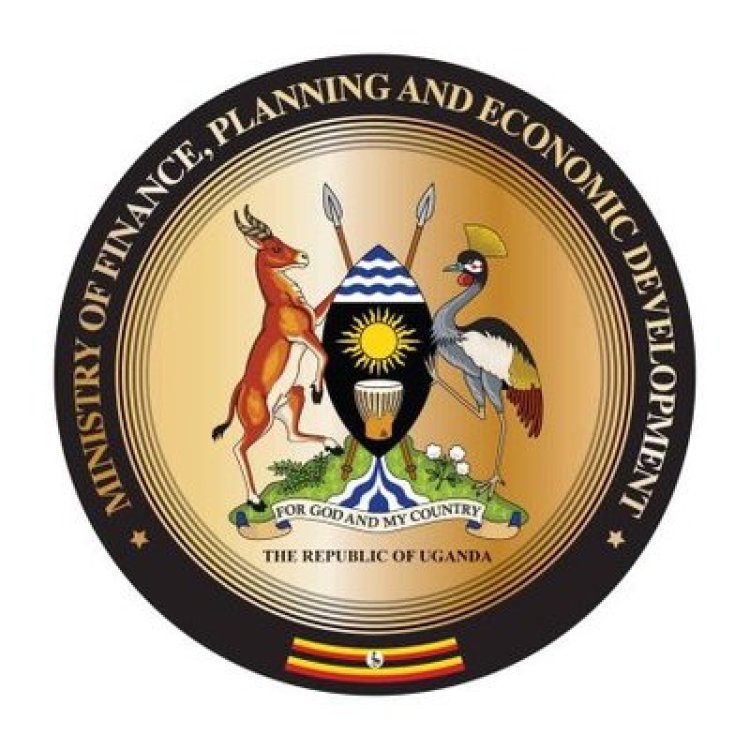2nd National Strategy for private sector development (NSPSD II 2022-2027/28) Launched

KAMPALA - Government of Uganda through the Ministry of finance, planning and Economic development has officially launched the 2nd National Strategy for private sector development that will run from 2022-2027/28 Financial Year. A Validation exercise of the second National Strategy for Private Sector Development happened at Hotel Africana in Kampala which sets out a comprehensive approach for coordinating growth & development of the private sector in Uganda.
The National Strategy for private sector development, is a five-year private sector development framework that identifies, and coordinates development interventions targeting private sector growth, building its resilience, and competitiveness. This strategy is a result of the recognition of the significance of the private sector as an engine of growth.
The Government of Uganda is cognizant of the fact that development of a strong and dynamic private sector is crucial to long-term, rapid sustainable economic growth, a necessary condition for sustained poverty reeducation.
NSPSDII is therefore a coordinating framework for all efforts aimed at consolidating private sector competitiveness in Uganda as envisaged by the third National Development Plan (NDPIII), on which the strategy is anchored.
The goal of NSPSDII is to position the private sector to accelerate inclusive monetization of the economy and it is themed on consolidating efforts for private sector competitiveness. This goal is well aligned with the Parish Development Model’s which is to increase the share of household who graduate into the non-subsistence economy and by extension the NDPIII’s goal of increasing household incomes and improving the quality of life of Ugandans. To attain the above goal, four specific objectives will be pursued namely:
- Sustaining efforts in reducing informality and increasing the competitiveness of the private sector.
- Fostering recovery and restoration of the private sector to drive sustainable economic growth and development.
- Strengthening area-based private sector development along commodity and product value chains.
- Strengthening the coordination of state and non-state efforts for effective delivery of the whole of government approach to private sector development.
The NSPSDII draws on the lessons, challenges and achievements of NSPSDI. Some of the major achievements of NSPSDI included, among others, increased export earnings, creation of over 7,000 jobs, infrastructural development, and digitalization of land registry.
In addition of drawing key lessons from NSPSDI, NSPSDII formulation was guided by a comprehensive analysis of; (i) the status of key parameters influencing the business environment (e.g., business development services, financial services, ease of doing business, productivity) of the country’s private sector both at national and sub-national levels, and (ii) the status of emerging cross-cutting issues like; refugees, urbanization and cities, poverty, digitalization and e-commerce etc.
The NSPSDII provides feasible inte4rventions at the macro, meso, and micro levels of the economy to turn around the private sector in terms of growth, competitiveness, and resilience.
At the macro level, the key interventions include: fast tracking the implementation of the Domestic Revenue Mobilization Strategy (DRMS); prioritizing the payment of government domestic arrears; further capitalization of public banks; ensuring a conducive interest regime; implementing a comprehensive local content policy; among others. The aim is to improve the macroeconomic environment for private sector development. Additionally, interventions aimed at; improving the legal and regulatory framework (e.g., through; removal of barriers to formalization, digitalization of business registration etc.,), improving market efficiencies via for instance implementing a competition law and revival of cooperatives, infrastructural expansion and maintenance, leveraging local private sector participation and prioritizing governance and administrative reforms, further aim to stimulate private sector growth and competitiveness at the macro level.
The meso-level interventions largely target enhancing access to markets and growing domestic and external opportunities. This will be through facilitating programs aimed at promoting local consumption of locally produced goods, expanding the covid-19 recovery fund, and developing and implementing a second national export development strategy.
Further, the meso-level interventions are also geared towards: enhancing commodity value addition; enhancing increased business to business linkages( for instance creating frameworks that agglomerate MSMEs with large firms, incentivizing input-supply oriented MSMEs, and developing fully serviced industrial parks); facilitating upward mobility along the industrial value chain, and construction of public-private sector dialogues that are aimed at influencing performance of the private sector at the industrial level or sector specific level. Similar or associated interventions which are specific to sub-regions are aimed at stimulating private sector development at sub-national level. This is in recognition of the inherent sub-regional heterogeneities that permeate the private sector at sub-regional level in terms of growth sectors, opportunities, and available economic infrastructure.
The micro level interventions are largely enterprise level and they aim at increasing competitiveness and growth of enterprises. They include; (i) creating and strengthening of a framework for business development services and (ii) developing and implementing a formalization strategy whose focus will be on largely bringing forward the advantages of this formalization. These are expected to stipulate formalization and professionalization of private sector enterprises. Additionally, increasing access to financial services e.g., by doubling and equitably availing the SME fund based on quota system, supporting growth of alternative funding like venture capital, de-risking private investments, among others are key to private sector development. Enhancing women’s and girl’s access to markets and resources (e.g., through supporting institutions offering gender-focused micro-credit and implementing policies that remove or ameliorate structural barriers to women’s participation in markets), and enhancing factor productivity at firm level like supporting firm-level automation all aimed at stimulating growth of private enterprises. Similar but specific interventions are identified for private sector development at sub regional levels.
The implementation of this strategy will follow the program approach in which all MDAs and stakeholders such as MoFPED, Ministry of Agricuture,Animal Industries and Fisheries, National Planning Authority, Ministry of Justice and Constitutional Affairs, Ministry of Works and Transport, MoLGSD, MoICT, PSFU, development partners among others will support the delivery of common results.
Coordination of the strategy’s implementation will be the responsibility of the Private Sector Development Unit (PSDU) of Ministry of Finance, Planning and Economic Development (MoFPED).
NSPSDII’s implementation is further buffered by a robust monitoring and evaluation framework to ensure timely tracking of performance progress and timely corrective action if deemed imperative to ensure that all interventions deliver as expected, in recognition of the whole government approach. The strategy will have an implementation committee established with specific terms of reference for effective delivery of intended outcomes while interventions will be financed by Government, Private sector and Development partners.

































































































